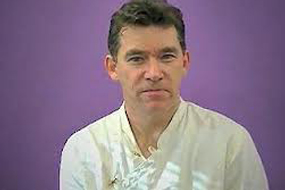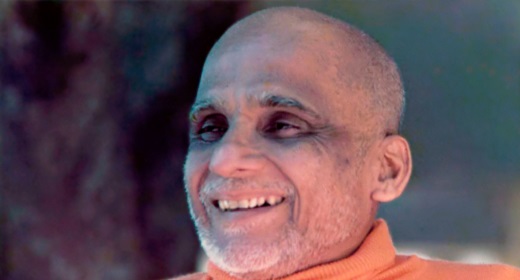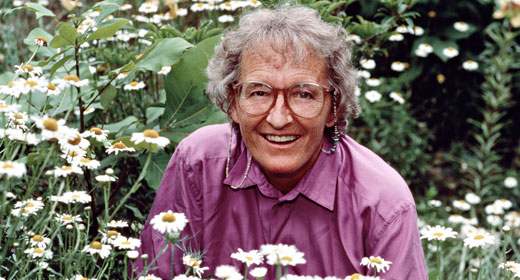by Steve Taylor PhD: To an impartial observer—say, an alien zoologist from another planet – there must be very compelling evidence that human beings suffer from a serious mental disorder, and are perhaps even insane.
 Recorded history is an endless catalogue of wars, along with stories of brutal oppression of great masses of human beings by a tiny privileged minority, including the brutal repression of women. In addition to this insane collective behavior, an alien zoologist might see signs of mental disorder in the way that many of us behave as individuals. He or she would be puzzled by the fact thathuman beings seems to find it so difficult to be happy. Why do so many people suffer from different kinds of psychological malaise – for example, depression, drug abuse, eating disorders, self-mutilation – or else spend so much time oppressed by anxieties, worries and feelings of guilt or regret, and negative emotions like jealousy and bitterness? And why do so many people seem to have an insatiable lust to possess things that they don’t need?
Recorded history is an endless catalogue of wars, along with stories of brutal oppression of great masses of human beings by a tiny privileged minority, including the brutal repression of women. In addition to this insane collective behavior, an alien zoologist might see signs of mental disorder in the way that many of us behave as individuals. He or she would be puzzled by the fact thathuman beings seems to find it so difficult to be happy. Why do so many people suffer from different kinds of psychological malaise – for example, depression, drug abuse, eating disorders, self-mutilation – or else spend so much time oppressed by anxieties, worries and feelings of guilt or regret, and negative emotions like jealousy and bitterness? And why do so many people seem to have an insatiable lust to possess things that they don’t need?
However, there are many groups of people in the world who don’t seem to be touched by this insanity – or at least, who weren’t until recent times. “Primal” peoples like the Australian Aborigines, the tribal peoples of Siberia, Lapland, Oceania and other isolated areas, generally had a very low level of warfare, if any at all. They also have high status for women, and are strikingly egalitarian and democratic. Almost uniformly, anthropologists have been struck by how naturally content and carefree these peoples seem, as if they are free of the psychological malaise which afflicts us.
This suggests that there is a fundamental difference between us and primal or prehistoric peoples, a difference which gives rise to the collective and individual insanity, which plagues us. Why should they be free of the insanity of warfare, oppression and materialism? I believe that this fundamental difference is what might be described as our “over-developed ego.”
We appear to have a more pronounced sense of individuality – or ego – than primal peoples. According to the anthropologist Lucien Levy-Bruhl, for example, the essential characteristic of primal peoples was their less “sharpened” sense of individuality. In his words, “the limits of their individuality are variable and
ill-defined.” He notes that, rather than existing as self-sufficient individual entities – as we experience ourselves – their sense of identity is bound up with their community and their land. He cites reports of peoples who use the word “I” when speaking of their group and others who see their land as an extension of their self, so that being forced away from their land would be tantamount to death. (This is why primal peoples are often prepared to commit suicide rather than leave their lands.)
I believe this over-developed ego is the fundamental madness from which we suffer from, and the root cause of our insane behavior. Intense ego-consciousness is a state of suffering. It brings a basic sense of isolation, of being separate from other people and the rest of reality. We experience ourselves as fragile entities trapped inside our own heads with the rest of the world “out there,” on the other side. And our egos send a constant stream of “thought-chatter” through our minds, a chaos of memories, daydreams, worries and fears which disturbs our being and creates a constant state of anxiety.
In addition, because we live in our thoughts so much, we find it very difficult to live in the present, and to appreciate the reality and beauty of the world in which we live. The world becomes a dreary, half-real place, perceived through a fog of thought. As a result of this, most people feel a basic sense of incompleteness and discontent. And this negative state is the basic source of the cravings for possessions and power and status, which is a way of trying to complete ourselves and compensate for our inner discord. We try to complete ourselves – and make ourselves significant – by gaining power over other people or by collecting wealth and possessions.
And in turn, this desire for wealth and power is at the heart of warfare and oppression. But just as importantly, our strong sense of ego means that it’s difficult for us to empathize with other people. We become “walled off” from them, unable to “feel with” them and to experience the world from their perspective or to sense the suffering we might be causing them. We become able to oppress and exploit other people in the service of our own desires.
However, there is a method of healing our inner discord and transcending our insanity: through “transpersonal” – or spiritual – development. The whole purpose of transpersonal development is
to transcend our intensified sense of ego, to blunt its walls of separateness and quiet its chaotic thought-chatter so that we can begin to experience a new sense of inner content and a new sense of connection to the cosmos and to other beings. This is what the practice of meditation aims to do: to generate a state of inner quietness in which the ego fades away.
As we transcend the intensified sense of ego, we begin to see the world as a meaningful and harmonious place. We become able to live in the moment and accept ourselves and our lives as they are, without wanting. And we also move beyond the social insanity of warfare and oppression. Since there is no discord inside us, we no longer crave for wealth and power, and now that we are no longer separate, we have the ability to empathize with other beings, and so become incapable of abusing or exploiting them. When the
ego is transcended, all of the madness of human behavior fades away, like the symptoms of a disease, which has now been cured. That is the only true sanity, and perhaps the only way in which we can hope to live in peace and harmony on this planet.








































